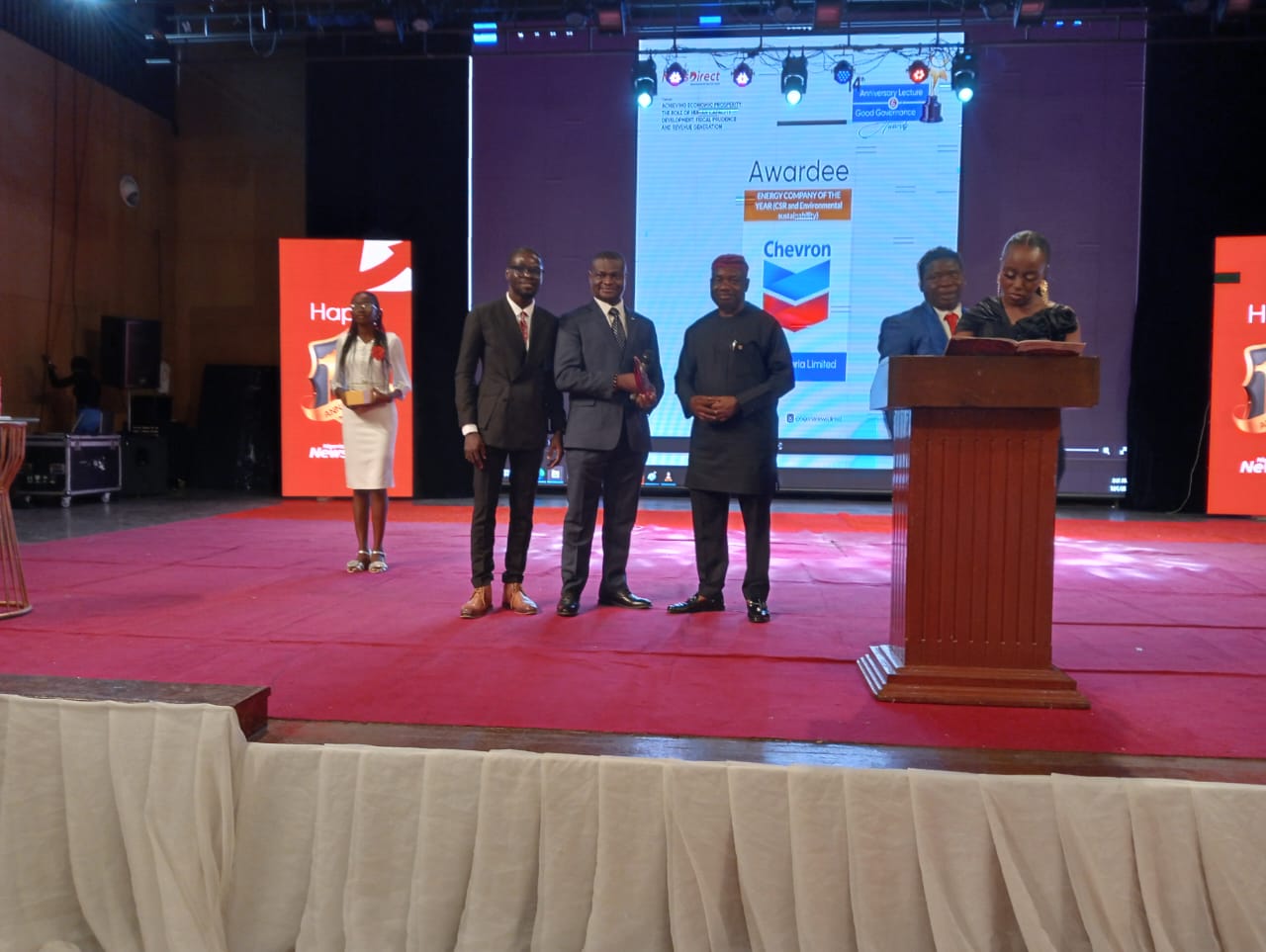Energy
FG Signs MOU With Chinese Firm On Coal Energy
ABUJA – The Nigerian Federal Government, yesterday, signed a Memorandum of Understanding, MoU with a Chinese energy firm, HTG/Pacific Energy Co. Ltd, for a $3.7 billion coal to power project.
The signing of the MoU took place at the Banquette Hall of the Presidential Villa, FCT Abuja at the end of a one day workshop on Solid Minerals sector at the villa.
After signing the MoU, the Chairman of Pacific Energy, Co. ltd, Adedeji Adeleke, said the MoU represents the first step to building plants that will generate additional 1200 mega watts of electricity to the national grid.
He also disclosed that a greater part of the funds required to carry out the project will be sourced from foreign banks.
 “For this particular project, almost all the fund are going to be borrowed from outside the country. The local banks have the capacity to fund, but there are certain things they need to see in place to make sure that their money will come back” he said.
“For this particular project, almost all the fund are going to be borrowed from outside the country. The local banks have the capacity to fund, but there are certain things they need to see in place to make sure that their money will come back” he said.
He said with the signing of the MoU, the nation can expect additional power generated into the grid within the next 48 months.
“This MoU is the first step towards our proposed 1200 mega watts power plant to be built in Enugu state, using the coal we are going to mine from the Ezima coal mine. The MoU is actually for the allocation of the coal mine,” he said,
Mr. Adeleke further stated that with the signing of the MoU, the company can now move into the Ezima coal complex to commence exploitation of the abundant coal deposit within the area.
” There is estimated reserve and confirmed reserve, but we are going to do our own work to confirm the actual reserve to make sure that we have enough to power the 1200 mega watts within the next say 50 years.
“This MoU now allows us to move in to start the exploration immediately,” he said.
He declared that the investment will be in two parts, one part involving the development of the coal mine and the construction of the power plant.
“If everything goes well with the exploration, we are expecting to start generating power within the next 48 months.”
President Goodluck Jonathan earlier in his speech had pointed that Nigeria’s Coal reserve which is put at about 360 metric tonnes if properly utilized can generate 30 percent of the nation’s electricity needs.
Speaking on the likely challenges, ahead of the resumption of activities in the coal mine, Mr. Adeleke also said the company envisages peaceful operation in the area but does not totally rule out possible conflict with the community.
“We do not know the community issues we are going to face. You know, you heard some of the issues raised here earlier; we also have issues like the power purchase agreement as well as ensuring that it is a bankable power purchase agreement because most of the money is going to be borrowed.
“Okay, it is not that somebody has the money somewhere. So we need bankable PPA, we need cooperation from the communities and we are going to do our part as corporate entity to make sure that the communities are taken care of as well as have the technology to check pollution,” he said.
Energy
Dangote Partnership: MRS Urges Nigerians To Insist On N935/Litre Petrol Price Nationwide

MRS Oil Nigeria Plc, a prominent player in the Nigerian downstream oil industry, has implemented a new petrol price of N935 per litre across all its retail service stations nationwide.
The company has also called on Nigerians to monitor and report any outlets that fail to adhere to the new price structure.
Biztellers reports that this is consequent upon an announcement by the President of Dangote Industries Limited, Aliko Dangote, that the Dangote Petroleum Refinery has partnered with MRS Oil and Gas to offer petrol at N935 per litre at retail outlets, following a reduction in the ex-depot price from N970 to N899.50 per litre.
ALSO READ: Dangote Slashes PMS Price To N899.50k
It was gathered that MRS Oil Nigeria Plc has instructed all its outlets to implement the new price immediately, setting up a digital platform and monitoring team to ensure full compliance.
In a statement on Monday night, the company declared, “Petrol is now being sold at N935 at MRS Filling Stations nationwide. If you find any station not following this price, please report it. Call 08009447853 or email: NG-FMKPMGWHISTLEBLOWING@NG.KPMG.COM”
Emphasising the eco-friendly nature of its products, MRS Oil added, “We call on all petrol station owners to join MRS Oil Nigeria Plc in improving the supply chain of our beloved country, ensuring product quality and availability in every corner of Nigeria for the benefit of all Nigerians.”
In Lagos, commuters were seen queuing at MRS filling stations to purchase petrol, with many expressing their gratitude to the Dangote Petroleum Refinery and MRS Oil and Gas, urging other marketers to support the indigenous refinery rather than import off-spec products into the country.
A commuter at the MRS station at Alapere on the Lagos Ibadan Express way, Ibukun Phillips, could not hide her joy as her husband filled up their car.
“I am very happy today. This is a victory for Nigeria,” she said. “The price reduction is the best gift of the season. But beyond just the reduction, we are buying standard, eco-friendly petrol at a lower rate. My husband and I have decided we will only be using MRS from now on because we are confident in the quality of the product and supporting the economy.”
A commercial bus driver, Adio Ajibade described the price reduction as a great relief, especially during the festive season.
“The reduction is a great relief. It will reduce transportation costs and benefit Nigerians. God will continue to bless Alhaji Aliko Dangote,” he said.
A public affairs analyst and university lecturer, Dr. Tunde Akanni, said the collaboration between Dangote Petroleum Refinery and MRS Oil represents a significant step towards improving the affordability, quality, and sustainability of petroleum products in Nigeria.
According to Dr. Akanni, “this move will not only help ease the financial burden on Nigerians but also promote a more environmentally conscious approach to fuel consumption, benefitting both the economy and public health in the long term.”
Energy
FDI: Shell To Invest Billions Of Dollars On Nigeria’s Bonga North Oil Field

As a direct implication of the Federal Government’s Foreign Direct Investment drive, the Royal Dutch Shell has completed the final investment decision on the deep offshore Bonga North project in Nigeria.
Biztellers reports that the Bonga North will be a subsea tie-back to the Shell-operated Bonga Floating Production Storage and Offloading (FPSO) facility which Shell operates with a 55% interest.
Shell’s Integrated Gas and Upstream Director, Zoë Yujnovich, said, “This is another significant investment, which will help us to maintain stable liquids production from our advantaged Upstream portfolio”.
ALSO READ: OGUNCCIMA Commends Dangote Refinery’s Impact
It was gathered that the Bonga North project involves drilling, completing, and starting up 16 wells (8 production and 8 water injection wells), modifications to the existing Bonga Main FPSO and the installation of new subsea hardware tied back to the FPSO.
The company is optimistic that the project will sustain oil and gas production at the Bonga facility.
The Bonga North currently has an estimated recoverable resource volume of more than 300 million barrels of oil equivalent (boe) and will reach a peak production of 110,000 barrels of oil a day, with first oil anticipated by the end of the decade.
In addition, the Bonga North will help ensure Shell’s leading Integrated Gas and Upstream business continues to drive cash generation into the next decade.
Energy
Chevron Nigeria Bags ‘Energy Company Of The Year For Environmental Sustainability And CSR

Chevron Nigeria Limited (CNL), has received an award as “Energy company of the year (2024)” for its Environmental Sustainability and Corporate Responsibility accomplishments.
The award presented by the Nigerian News Direct newspaper, on Friday December 6, 2024, and was received by Manager Communications, Chevron Nigeria and Mid-Africa Business Unit, Victor Anyaegbudike, at a colourful event at the Grand Ballroom of the Oriental Hotel, Lagos.
ALSO READ: Stakeholders Hail NCDMB As Local Content Level Hits 56%
The organizers of the award noted that Chevron has implemented the “Protecting People and the Environment” policy, which aims at preventing injuries, illnesses, and environmental incidents. They also referenced that the company has achieved 97% gas flaring reduction in its operations in Nigeria, while implementing waste management and environmental conservation programs.
According to the media organization, Chevron Nigeria has also invested millions of dollars in community development programs, supporting education, health and economic development initiatives that have benefited thousands of people, while ensuring diversity, inclusion, and employee engagement in its business operations.
Receiving the award from the Lagos State Commissioner for Information and Strategy, Gbenga Omotosho, Anyaegbudike thanked the organizers for the honour, and reiterated Chevron’s commitment to continue to develop, affordable, reliable and ever-cleaner energy that enables human progress around the world.















